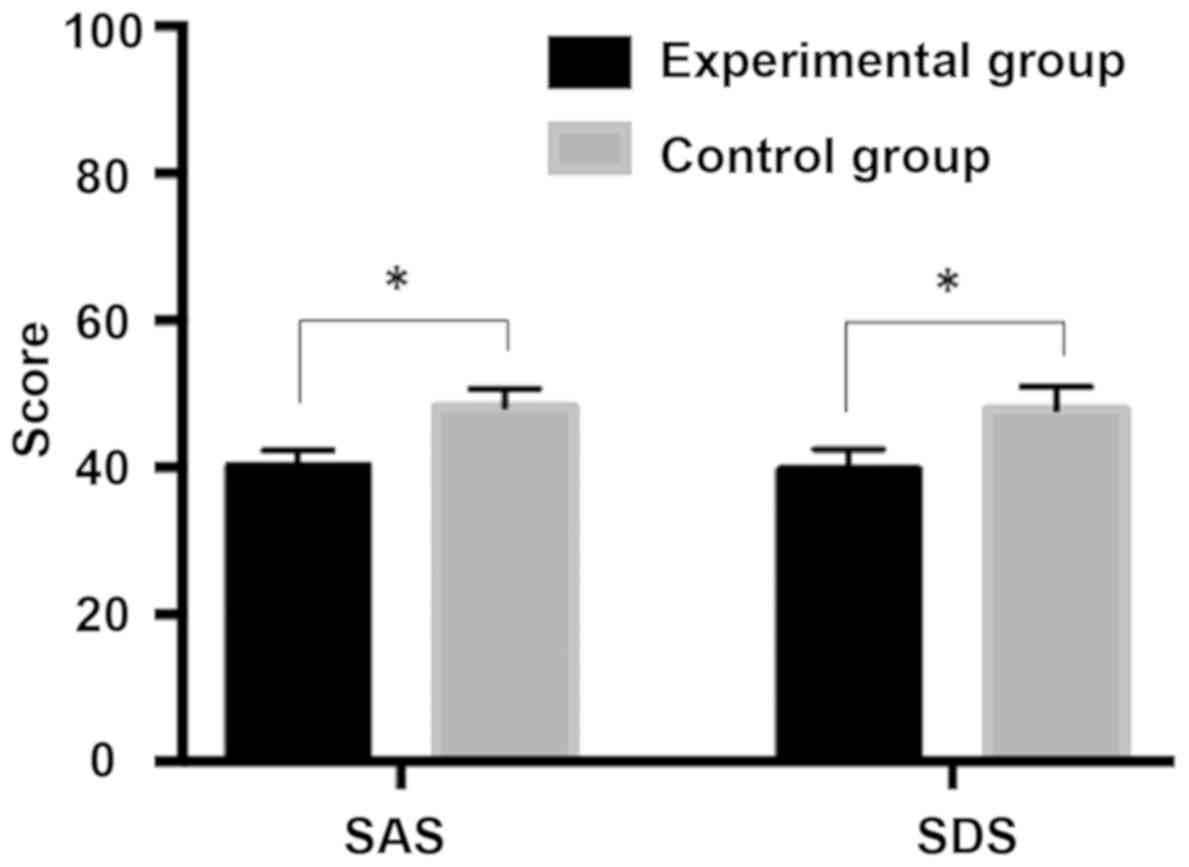|
1
|
Jonas S, Benckert C, Thelen A,
Lopez-Hänninen E, Rösch T and Neuhaus P: Radical surgery for hilar
cholangiocarcinoma. Eur J Surg Oncol. 34:263–271. 2008. View Article : Google Scholar : PubMed/NCBI
|
|
2
|
Khan SA, Thomas HC, Davidson BR and
Taylor-Robinson SD: Cholangiocarcinoma. Lancet. 366:1303–1314.
2005. View Article : Google Scholar : PubMed/NCBI
|
|
3
|
Koh KC, Lee H, Choi MS, Lee JH, Paik SW,
Yoo BC, Rhee JC, Cho JW, Park CK and Kim HJ: Clinicopathologic
features and prognosis of combined hepatocellular
cholangiocarcinoma. Am J Surg. 189:120–125. 2005. View Article : Google Scholar : PubMed/NCBI
|
|
4
|
Choi SB, Kim KS, Choi JY, Park SW, Choi
JS, Lee WJ and Chung JB: The prognosis and survival outcome of
intrahepatic cholangiocarcinoma following surgical resection:
Association of lymph node metastasis and lymph node dissection with
survival. Ann Surg Oncol. 16:3048–3056. 2009. View Article : Google Scholar : PubMed/NCBI
|
|
5
|
Wang M, Fang M, Zhu J, Feng H, Warner E,
Yi C, Ji J, Gu X and Gao C: Serum N-glycans outperform CA19-9 in
diagnosis of extrahepatic cholangiocarcinoma. Electrophoresis.
38:2749–2756. 2017. View Article : Google Scholar : PubMed/NCBI
|
|
6
|
Morise Z, Sugioka A, Tokoro T, Tanahashi
Y, Okabe Y, Kagawa T and Takeura C: Surgery and chemotherapy for
intrahepatic cholangiocarcinoma. World J Hepatol. 2:58–64. 2010.
View Article : Google Scholar : PubMed/NCBI
|
|
7
|
Lee SG, Song GW, Hwang S, Ha TY, Moon DB,
Jung DH, Kim KH, Ahn CS, Kim MH, Lee SK, et al: Surgical treatment
of hilar cholangiocarcinoma in the new era: The Asan experience. J
Hepatobiliary Pancreat Sci. 17:476–489. 2010. View Article : Google Scholar : PubMed/NCBI
|
|
8
|
Lazaridis KN and Gores GJ:
Cholangiocarcinoma. Gastroenterology. 128:1655–1667. 2005.
View Article : Google Scholar : PubMed/NCBI
|
|
9
|
Huether A, Höpfner M, Baradari V, Schuppan
D and Scherübl H: Sorafenib alone or as combination therapy for
growth control of cholangiocarcinoma. Biochem Pharmacol.
73:1308–1317. 2007. View Article : Google Scholar : PubMed/NCBI
|
|
10
|
Cho OH, Yoo YS and Kim NC: Efficacy of
comprehensive group rehabilitation for women with early breast
cancer in South Korea. Nurs Health Sci. 8:140–146. 2006. View Article : Google Scholar : PubMed/NCBI
|
|
11
|
Tilley DM, Hristov S, Templeton DJ, Sharp
NC and O'Connor CC: Cervical cancer screening and abnormalities
among women in a residential drug-rehabilitation program. Aust J
Prim Health. 18:266–267. 2012. View
Article : Google Scholar : PubMed/NCBI
|
|
12
|
Compher C, Jain AK, Nichol PF, Blackmer A,
Earthman C, Evans DC, McCarthy MS, Taylor B and Mehta N: Research
Agenda 2018: The American Society for Parenteral and Enteral
Nutrition. JPEN J Parenter Enteral Nutr. 42:838–844. 2018.
View Article : Google Scholar : PubMed/NCBI
|
|
13
|
Tsuchida Y and Therasse P: Response
evaluation criteria in solid tumors (RECIST): New guidelines. Med
Pediatr Oncol. 37:1–3. 2001. View
Article : Google Scholar : PubMed/NCBI
|
|
14
|
Donini LM, Poggiogalle E, Molfino A,
Rosano A, Lenzi A, Rossi Fanelli F and Muscaritoli M:
Mini-nutritional assessment, malnutrition universal screening tool,
and nutrition risk screening tool for the nutritional evaluation of
older nursing home residents. J Am Med Dir Assoc.
17:959.e11–959.e18. 2016. View Article : Google Scholar
|
|
15
|
Derogar M, van der Schaaf M and Lagergren
P: Reference values for the EORTC QLQ-C30 quality of life
questionnaire in a random sample of the Swedish population. Acta
Oncol. 51:10–16. 2012. View Article : Google Scholar : PubMed/NCBI
|
|
16
|
Dunstan DA, Scott N and Todd AK: Screening
for anxiety and depression: Reassessing the utility of the Zung
scales. BMC Psychiatry. 17:3292017. View Article : Google Scholar : PubMed/NCBI
|
|
17
|
Doherty B, Nambudiri VE and Palmer WC:
Update on the diagnosis and treatment of cholangiocarcinoma. Curr
Gastroenterol Rep. 19:22017. View Article : Google Scholar : PubMed/NCBI
|
|
18
|
Xue F and Huang F: The effect of
psychological intervention on nutrient status of perioperative
patients with lung cancer. Iran J Public Health. 47:531–537.
2018.PubMed/NCBI
|
|
19
|
Seifter EJ: Clinical Oncology, Second
Edition. J Natl Cancer Inst. 93:632001. View Article : Google Scholar : PubMed/NCBI
|
|
20
|
Saotome T, Klein L and Faux S: Cancer
rehabilitation: A barometer for survival? Support Care Cancer.
23:3033–3041. 2015. View Article : Google Scholar : PubMed/NCBI
|
|
21
|
Saggini R, Bellomo RG, Carmignano SM and
Saggini A: Cancer pain - the role of an integrated, comprehensive
rehabilitation program in its management. In: Updates on Cancer
Treatment. Rangel LBA and Silva IV: InTech. 2015
|















